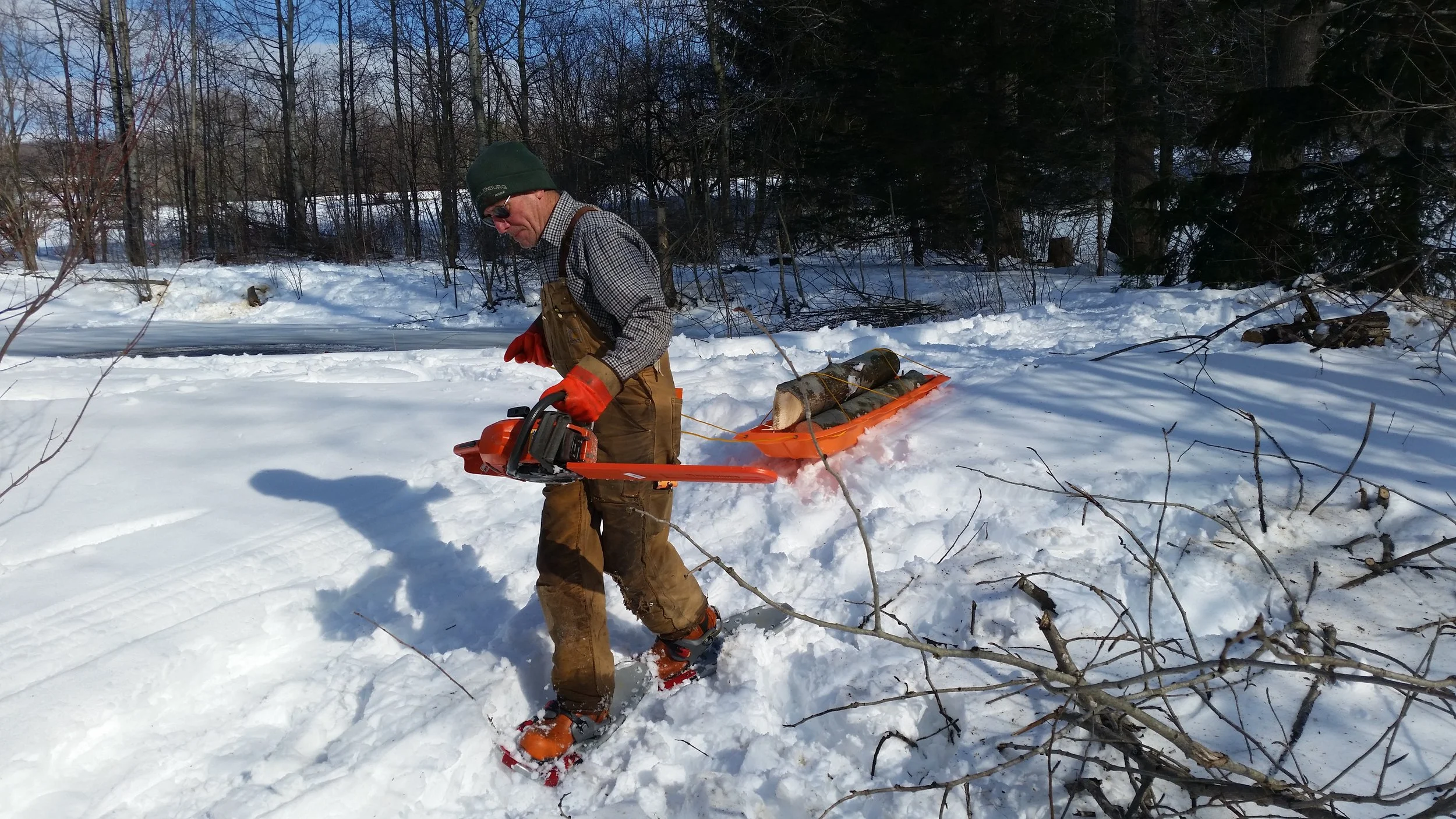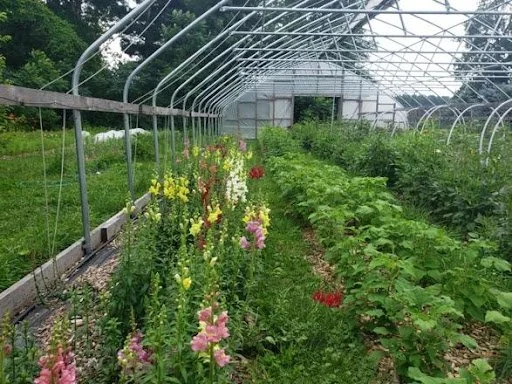These aren’t your grandmother’s flower arrangements.
They are your grandfather’s flower arrangements!
Our story
Pendragon’s Bouquet began in 2010, when Jonathan Bernstein began building a family-owned farm for which sustainable practices would be at the heart of the business. First establishing a pesticide-free and herbicide-free property, Pendragon’s Bouquet started off selling edible annual and perennial flowers to the local Trumansburg community. In 2015, he added shiitake mushrooms to the farm’s operation; cutting 100 short logs or ‘bolts’ of red and white oak and rock maple from already-fallen trees. Since then he has cut and cultivated 200 bolts annually. Now in 2022, shiitakes are harvested from 1600 bolts in the growing season, distributed to local restaurants and markets, and available to individual customers at the Trumansburg Farmer’s Market.
Having worked as a commercial baker since 1975 and as a founder of Clever Hans Bakery, it was only natural for Jonathan to continue to use his culinary talents for Pendragon’s Bouquet. Since 2013, after learning that one of his grandchildren was gluten-intolerant, he specializes in gluten-free baked goods with nut-free and dairy-free options. Jonathan uses locally sourced ingredients, including eggs from his own free-range chickens.
While the farm is located in Trumansburg, NY, on less than an acre of land, Jonathan and Angela maximize the farms productivity and growing season by raising all of their own seedlings in the property’s greenhouse. To extend the growing season further, they added a high tunnel to the farm in 2019. They continue to mulch with their own compost of leaves, chicken manure, and wood ash, with the goal of providing pesticide-free, and herbicide-free products in a healthy environment.
Sustainable Practices
One might say that Pendragon’s Bouquet was designed around sustainable practices as much as the flower beds, themselves. By first making use of the resources in the area, we’re able to reduce unnecessary consumer-driven expenses.
For instance, most flower farmers cover their beds with plastic, but we use biodegradable newspaper layers and wood chips to provide an effective barrier to weeds. We don’t drop trees for mushroom bolts. Instead, we cut bolts from the tops of fresh-fallen timber harvests and collect them in winter by sled on the snow.
In the spring, we put our rototiller to use on our annual beds, but that plus a mower is the extent of powered-equipment. What’s more, by mowing grass-covered aisles, we’re able to harvest greens for our free-range hens. Solar panels provide energy to maintain greenhouse temperature and rain water is collected and used to water the flower beds during dry spells.
Reducing waste on the farm is as important to us as the flowers we grow. We reuse, repair, repurpose, recycle, and use compost to replenish the soil.
Additionally, we grow rosemary and, after turning it into an oil, use this as a consumer-safe pest deterrent.
Each year we fine tune these practices and find ways to incorporate others. We hope that our farm will offer future generations more than just bouquets and food products but also a better environment.




